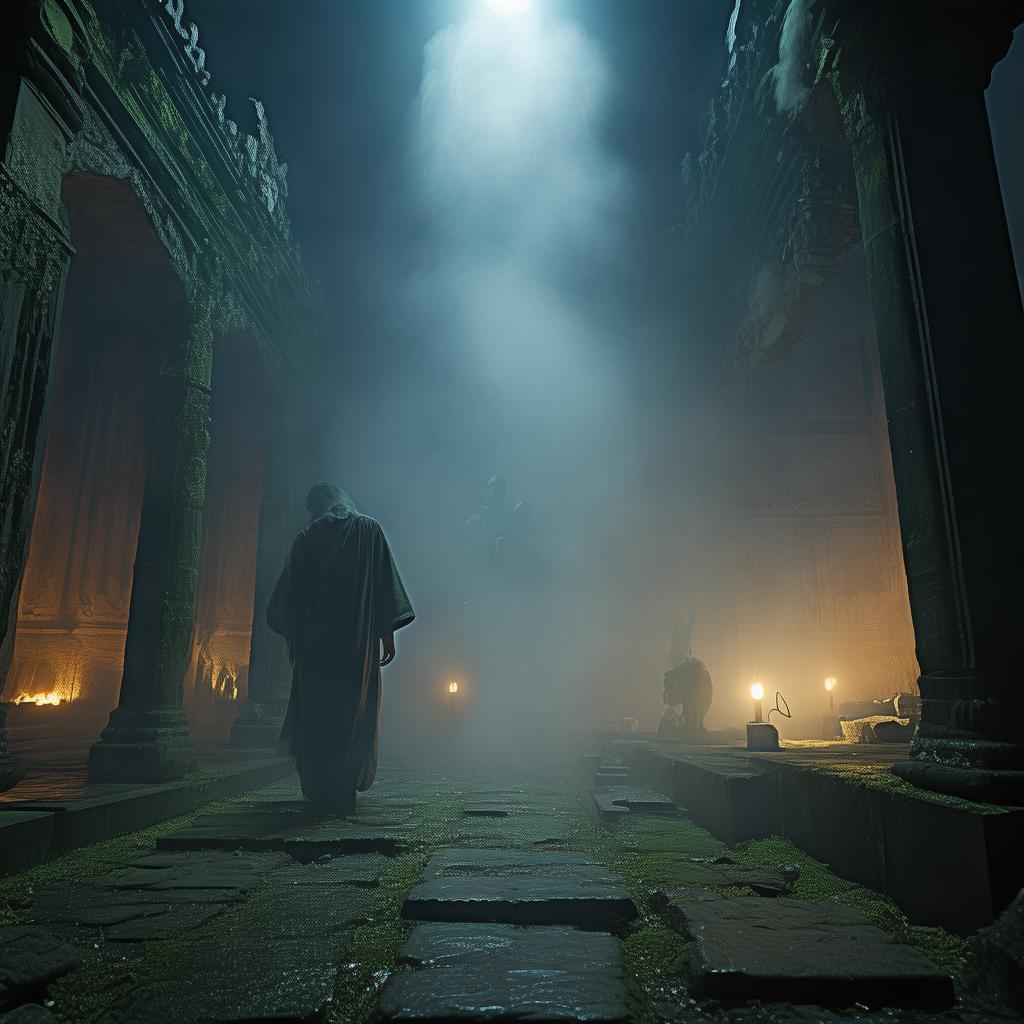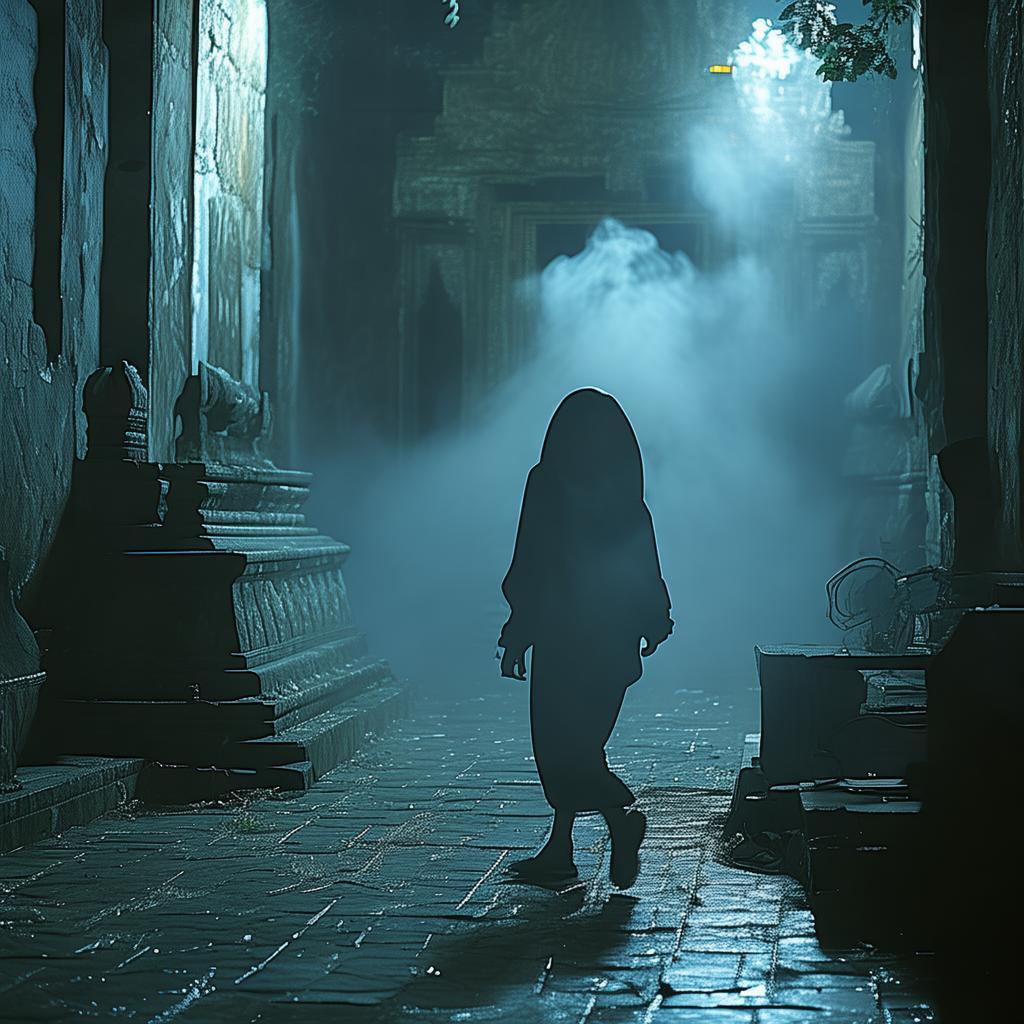The Haunting of the Forgotten Lighthouse
In the shadowed corner of the coastal town of Marlowe stood an ancient lighthouse, its once-vibrant red paint now faded and peeling. The locals whispered tales of the lighthouse, of a tragic love story that ended in sorrow and the mysterious disappearance of the last keeper. But for young writer, Emily Carter, the lighthouse was more than just a local legend; it was the setting for her latest novel.
Emily had recently been struggling with writer's block. She needed inspiration, and she believed that the eerie lighthouse, with its windswept cliffs and the endless howling of the sea, could provide her with the perfect backdrop. With a heart full of ambition and a mind brimming with questions, she packed her bags and moved into the dilapidated structure.
The first night was unsettling. The wind howled through the broken windows, and the creaking floorboards seemed to echo her every step. As she settled into her new quarters, Emily couldn't shake the feeling that she was not alone. She felt a chill run down her spine, as if a presence was watching her from the shadows.
The next morning, Emily began her research, combing through old newspapers and interviews with the townsfolk. She learned about the keeper, Mr. Thomas Hargrove, and his wife, Eliza. They were a young couple, in love and passionate about their work. But tragedy struck when a fierce storm came without warning, and Mr. Hargrove was lost at sea. Eliza, heartbroken, remained in the lighthouse, refusing to leave her husband's side. The townspeople speculated that she had become a ghost, haunting the place she loved.
Emily's imagination ran wild with the possibilities. She started to see glimpses of Eliza, her long hair flowing in the wind, her eyes filled with sorrow. She would catch faint whispers, but no one else seemed to hear them. Emily began to incorporate these supernatural elements into her novel, weaving them seamlessly into the plot.
As days turned into weeks, Emily's routine became a cycle of writing and exploring the lighthouse. She found an old, dusty journal in the attic, filled with Eliza's thoughts and dreams. The entries spoke of her love for Thomas, her despair at his loss, and her belief that he would come back to her. Emily felt a deep connection to the woman, as if she were channeling her own emotions through Eliza's words.
One evening, as Emily was sitting by the window, she saw a figure in the distance. It was Eliza, standing on the cliff's edge, her hair blowing in the wind. Emily's heart raced as she watched the ghostly figure. Eliza turned and looked directly at her, her eyes filled with a mixture of longing and despair.
Suddenly, the wind grew stronger, and the figure began to move towards the lighthouse. Emily stood frozen, her breath catching in her throat. As Eliza reached the door, she looked back at Emily one last time, and then vanished into the darkness.
Emily's novel was nearing completion, and she felt a sense of urgency to finish it. She worked tirelessly, pouring her heart into the story. But as she delved deeper into the supernatural elements, she began to question her own sanity. The presence of Eliza seemed to grow stronger, and Emily felt as if she were being pulled into a twisted world where reality and fiction blurred.
One night, as Emily was writing, she heard a soft whisper. "You are the one," the voice echoed through the room. She looked around, but saw no one. She continued to write, ignoring the strange sensation, until she reached the climax of her novel.

In the final scene, Emily's protagonist discovers that the ghost she has been chasing is not a spirit of the past, but a manifestation of her own inner turmoil. The protagonist, like Emily, had been struggling with unresolved issues from her past, and the ghost was a manifestation of her own guilt and sorrow.
As Emily reached the end of her novel, she felt a sense of release. The story was finished, and with it, she felt a connection to Eliza and Thomas that had changed her forever. She closed the laptop and looked out the window at the lighthouse, now bathed in the golden light of the setting sun.
In the reflection of the window, Emily saw Eliza's face once more, but this time, there was no sadness. The ghostly figure smiled, and then vanished into the horizon. Emily realized that the experience had been a gift, a chance to confront her own fears and to understand the power of storytelling.
She packed her belongings and left the lighthouse, feeling a sense of peace. The story she had written was a testament to the strength of love and the enduring power of memory. And as she drove away from Marlowe, she knew that the haunting of the forgotten lighthouse would forever be etched in her soul.
✨ Original Statement ✨
All articles published on this website (including but not limited to text, images, videos, and other content) are original or authorized for reposting and are protected by relevant laws. Without the explicit written permission of this website, no individual or organization may copy, modify, repost, or use the content for commercial purposes.
If you need to quote or cooperate, please contact this site for authorization. We reserve the right to pursue legal responsibility for any unauthorized use.
Hereby declared.









